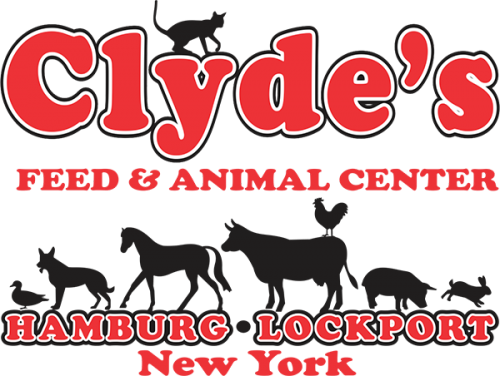
Many pet experts suggest feeding pets a raw diet. A food that consists primarily of the right meat ingredients is the most biologically-appropriate thing you can feed dogs and cats, natural carnivores in the wild. It can lead to a healthier, more vibrant pet, as well as lower vet bills.
However, many pet parents thinking about switching pets from dry kibble or canned pet food to a commercial raw diet are sometimes hesitant, concerned about the possibility of adding inconvenience to an already busy life. But feeding your pet a raw diet doesn’t have to be overly complicated. Some suggestions from a few experts can make feeding your cat or dog raw food much easier.
Quick Refresher on Raw Pet Food Benefits & Safety
“There’s nothing to fear and so much to gain by serving your dog or cat the food nature intended him to eat,” says Dr. Karen Becker, a proactive and integrative wellness veterinarian. “The truth is both cats and dogs are designed specifically to consume raw meat. Their bodies are adapted to process raw, living foods.”¹ Raw meat and poultry, along with proper percentages of bone and organ meat, supply a naturally correct profile of amino acids and most vitamins and minerals. A carnivore-appropriate raw diet would also contain small amounts of vegetation, like fruits and vegetables. Wild carnivores would naturally consume these when eating the intestinal contents of their prey. In addition, raw foods contain the natural enzymes and healthy bacteria that aid in digestion and play a key role in supporting a healthy immune system.
Commercial raw pet food is also safe to feed your pet. Most raw pet food manufacturers use High Pressure Pasteurization (HPP) to prevent pathogens that can make your pets sick. However, tests have shown that raw diets made using HPP lost some of their natural nutrients and benefits. There are other ways to ensure raw pet food safety. “We take a number of steps to ensure our raw food is safe, without using HPP,” says Scott Freeman, founder of Nature’s Logic. “Nature's Logic uses ingredients that have been tested for quality and purity to help alleviate any potential risk of pathogens, rancidity, or toxins and produces all of its raw products in a USDA Human Food Plant.”²
Feeding Pets Raw is NOT Difficult – Just Different
Once pet parents decide to feed their dog or cat a commercial raw pet food, they won’t find it as overwhelming as they predicted. “It’s really not any more difficult than going to the cupboard, scooping out dry food, and putting it into your pet’s bowl,” says Megan Trester, Sales Associate for The Raw Connection, a natural pet food store in Carmel, California specializing in raw foods.³ The experts at The Raw Connection consult with customers every day on how to work raw feeding into their daily routine and make it as easy as feeding any other form of pet food.
First they consider the size of the pet and calculate the amount of food per meal and how much the customer will need to buy. Then they walk them through the simple steps of feeding once they get the food home. “A 50-pound dog will need 16 ounces of raw food each day, or two 8-ounce patties,” explains Trester. “So, for example, they can store an 8-pound bag of raw frozen patties in the freezer and each evening take out two to thaw in the refrigerator for the next day’s meals.”
Ingrid King, founder and publisher of the award-winning blog The Conscious Cat,4agrees that feeding raw is not that hard. “I usually tell people that feeding raw is not that different from feeding canned,” King explains. “When you use the prepared frozen raw food, which is already completely supplemented, the only difference is that instead of opening a can, you thaw out the food a day or two ahead of time. I thaw out two or three days worth of food at a time, and when I’m down to my last serving, I thaw out the next two or three days’ worth of food. I’m lazy – which is why I love brands that use either nuggets or patties, which makes it easy to figure out serving sizes.”
Even if you occasionally forget to thaw out that meal ahead of time, it’s pretty easy to serve up quickly. You can place the serving in a sealed, zip-lock bag and submerge in lukewarm water while you go do something else. In about 10 to 15 minutes, it will be ready for your pet to enjoy.
The hardest part may be changing your pet’s food. Most dogs will cooperate pretty easily, but cats are notoriously resistant to change. The Conscious Cat has an excellent article with step-by-step tips for switching your cat’s food.5 Ingrid King’s blog was recently voted “Best Website About Cats” by About.com.
Raw Food Worth the Learning Curve
Every day, associates at The Raw Connection see pets with specific health problems, such as kidney, liver, or digestive issues, whose owners have been encouraged to feed a raw diet. “At first they are hesitant,” says Trester, “but when we explain that raw food can keep their pet healthier and reduce vet bills, they understand that a little extra effort to learn about raw feeding is worth it.”
A good raw diet is an excellent choice for any dog or cat. A proper raw food, based on high percentages of animal protein, little or no grain, and vegetation naturally supplies all the nutrients pets need for optimal nutrition. It can greatly reduce a number of diseases or the severity of them in our pets. Nature’s Logic raw frozen pet foods are safe and 100% natural, with all the nutrients coming from raw meats, poultry and produce. The 3.2 oz patties, each about the size of a hockey puck, are easy to store and feed and come in rabbit, beef, venison and chicken formulas. For more information, please visit www.natureslogic.com .





Comments